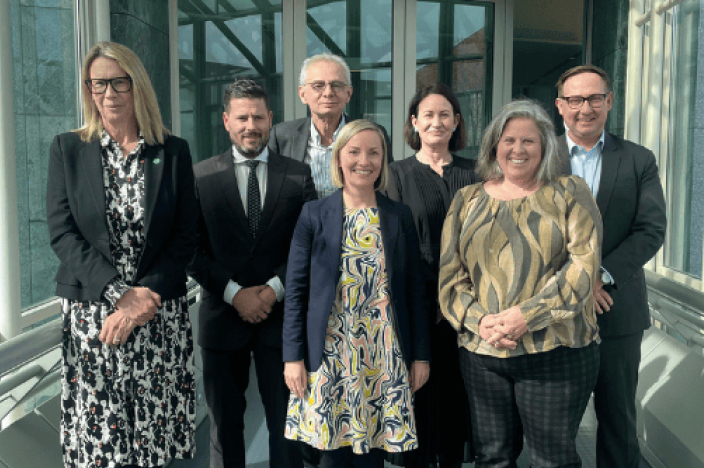August 2025
Standards in sight

New national access model
"Industry leaders have joined Standards Australia at Parliament House to call for the removal of paywalls for any standard embedded in law or the National Construction Code."
In 2006, the Productivity Commission recommended a simple principle: if a standard is written into law, it should be freely available to the people who must follow it. Governments, the Commission said, should fund free or low-cost access to mandated Australian
standards in the interests of transparency, accessibility and fair compliance.
Nearly 20 years later, the issue remains unresolved.
On 28 July 2025, industry leaders joined Standards Australia to call for a national access model for
any Australian standard embedded in legislation or the National Construction Code (NCC). Consult Australia, as a founding member of the Australian Sustainable Built Environment Council (ASBEC), supported this call.
Consult Australia’s
submission to the Productivity Commission calls
for “free access to Australian standards referenced in legislation and building codes”.
“Our position is simple: if a standard is mandated in legislation, it should be freely available,” says Kristy Eulenstein, Consult
Australia’s Head of Policy and Government Relations.
“Lack of free access to standards has serious implications for the safety and quality of buildings – and it’s a drain on productivity.”
There
are 7,519 Australian Standards in existence, and 893 written into law. Their inaccessibility is outlined in the National Competition Policy analysis 2025 Interim report.
Around 120 standards are referenced in the NCC, and these standards often reference further standards. This means a single project can be required to access hundreds of standards. The interim report provided an example of a small electrical
engineering firm forced to purchase hundreds of standards for a single infrastructure project, at cost greater than its profit margin.
“For many firms, particularly small and medium-sized ones, the cost of compliance can be punishing.
Removing paywalls could lift compliance, improve safety, reduce rework and make it easier for practitioners to learn and apply best practice.”
The Productivity Commission’s Interim Report that suggests that governments could
fund access to standards incorporated in legislation. The cost to governments has been estimated to be about $7 million per year.
Standards Australia has announced an “end-to-end” review and
is accepting submissions until 19 September. “We are keen for member feedback to feed into the submission process,” Kristy says.
“It’s been almost two decades since the Productivity Commission first called for action on standards. With a united industry voice and a clear path forward, we have a chance to finally fix it.”